The Legend of Solomon’s Tablet
Lena, Petya, and Professor Skvorcov travel to Jerusalem to uncover the mystery of the ancient Solomon's Tablet, which may contain great secrets from the past. However, they are not alone—there are other archaeologists competing against them, and they must overcome traps on their way to the goal.
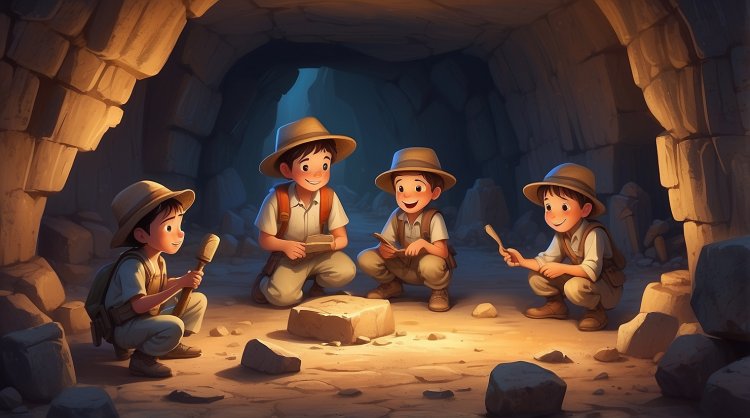
Lena and Petya, with backpacks on their shoulders, stood on the ancient stone pavement in Jerusalem, looking at the high walls of the old city. Professor Skvorcov was impatient—before them lay an excavation in an ancient cave, where, according to rumors, the mysterious Solomon's Tablet was supposed to be hidden.
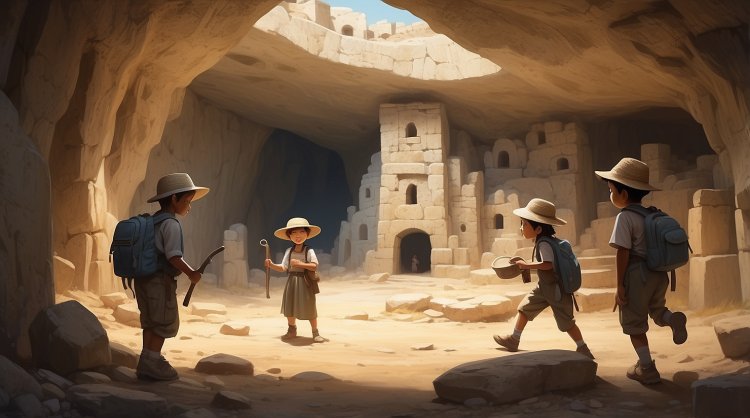
“This Tablet could reveal great secrets of the ancient world,” the professor said, carefully examining the ancient arches of the cave. “Solomon was a wise king, and his knowledge could have been the foundation for many modern teachings.”
“And what’s written on it?” Lena asked. “Why is it so important?”
“The Tablet, as archaeologists believe, contains keys to ancient knowledge that could change our understanding of many things. But unfortunately, we are not the only ones searching for it. There are other researchers here, too.”
As soon as they approached the cave, Lena and Petya noticed that other archaeologists were already at work, equipped with tools and maps, as though someone had beaten them to it.
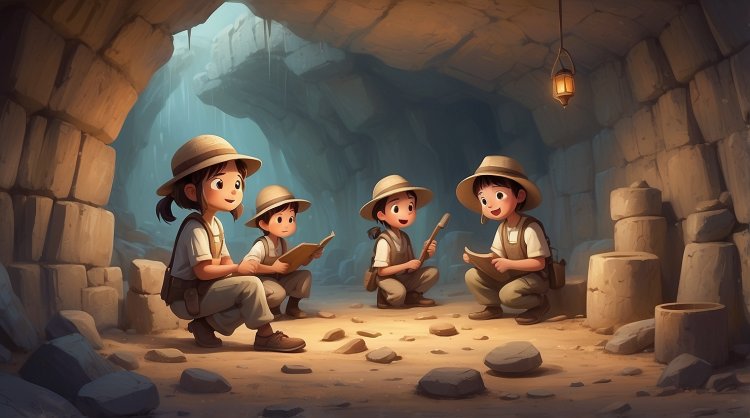
“Looks like we’re not the first ones,” Petya said, a little disappointed.
“But that won’t stop us,” the professor replied confidently. “We’ll find the Tablet if we work together and keep our cool.”
They began the excavation, carefully examining every corner of the cave, trying to find any traces of the ancient artifact. Soon, Lena noticed strange symbols on the cave walls that resembled ancient hieroglyphs.
“Professor, look! This could be a clue!” she exclaimed, pointing to a stone.
Professor Skvorcov carefully examined the symbol and said:
“This is an ancient symbol of wisdom. It points to the direction in which we should search for the Tablet. Let’s follow this sign.”
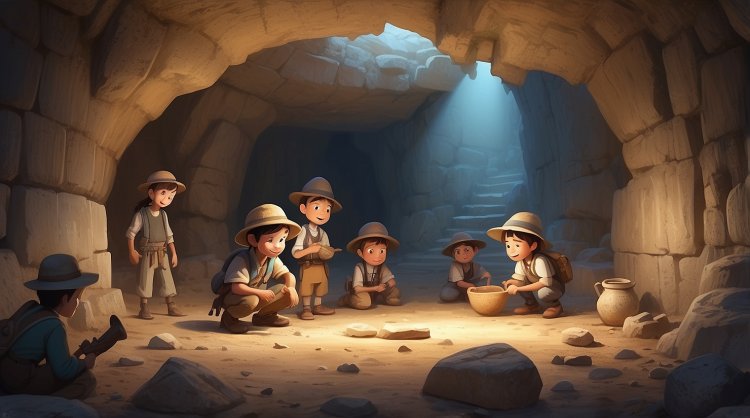
The group continued their search. Soon, they discovered an old door hidden behind a stone wall. It was covered with the same symbols that had been on the cave walls.
“This is it!” the professor exclaimed. “But be careful. In ancient times, such doors often concealed traps.”
Lena and Petya looked nervously at the mechanisms hidden in the stones of the door. The professor studied them carefully and finally figured out how to open the entrance.
“We need to turn these stones in the correct order,” he explained, pointing to the ancient markings.
Lena, without hesitation, carefully turned one of the stones, and the door creaked open. They entered a deep room, where in the center lay a stone table with an image of King Solomon carved into it.
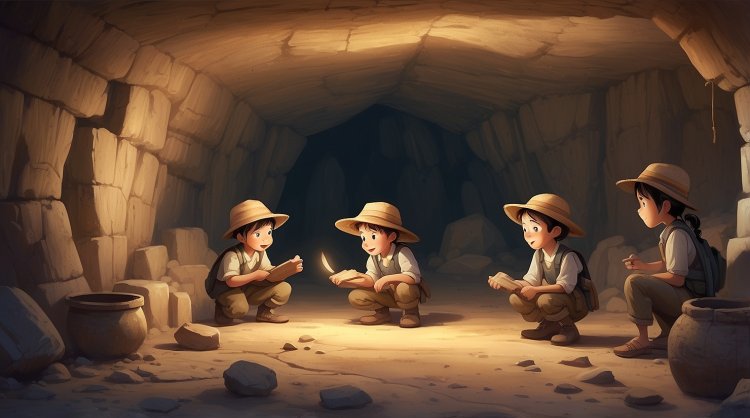
“We’re almost there,” said the professor. “The Tablet must be somewhere here.”
But suddenly, other archaeologists appeared at the door of the room, also searching for the Tablet. They blocked the path of the children and the professor.
“We found it first,” one of the archaeologists declared with a smug smile. “This Tablet belongs to us.”
“But we were here first!” Petya protested. “We found all the clues!”
“That’s how the game works,” replied another archaeologist. “Whoever gets there first, gets the prize.”
Lena and Petya felt the situation becoming tense. The professor decided they needed to act quickly.
“Let’s try another way,” he suggested. “We’ll bypass this group and get to the Tablet from the other side.”
While the archaeologists argued, Professor Skvorcov’s group, with Lena and Petya, sneaked through a secret passage and found themselves right in front of Solomon's Tablet.
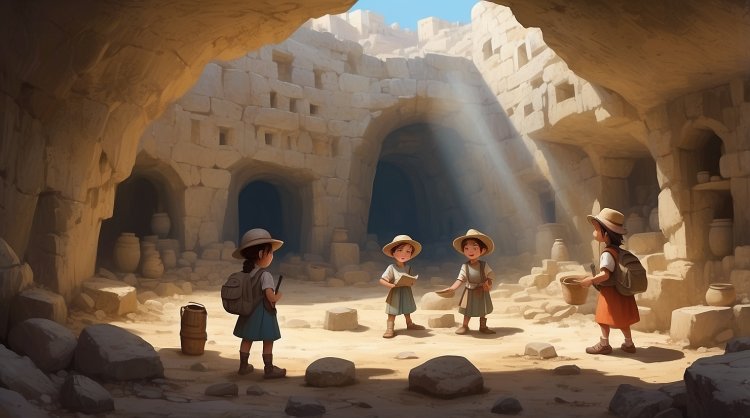
“We did it!” Petya said joyfully. “We found Solomon’s Tablet!”
“And now we can uncover its secrets,” the professor added, carefully examining the ancient artifact. “But this isn’t the end. There is still much work to do to reveal all of its mysteries.”
The children felt that their journey was just beginning, and ahead of them lay many more amazing discoveries. But one thing was clear: they had become part of a great story that would last for centuries.
What's Your Reaction?




















